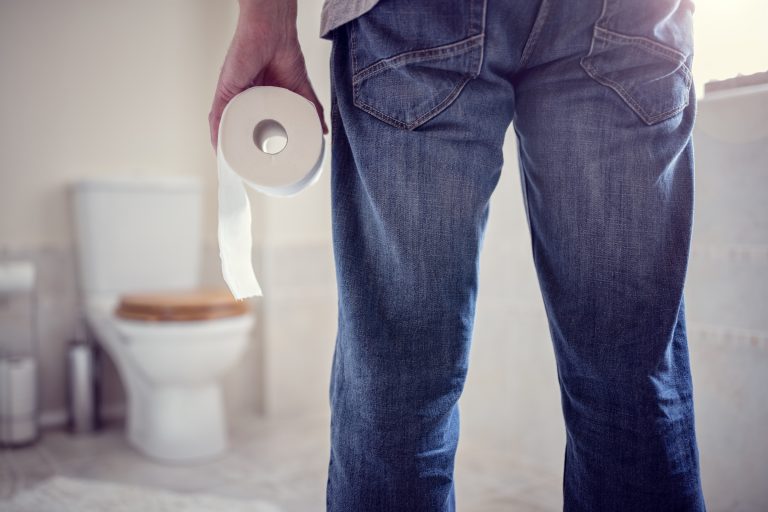What sparks this curiosity?
In the quest for understanding human intricacies, one question often tiptoes into the realm of curiosity: Do men poop more than women? Let’s embark on a journey through biology, culture, and societal perceptions to shed light on this peculiar inquiry.
Biological Differences: Digestive system variances
Our bodies, intricate and unique, exhibit differences in the way they process food. Men and women have distinct digestive systems, influencing the frequency and manner of their bathroom visits. Exploring these variations unravels the essence of the age-old question.
Frequency and Regularity: Daily habits unpacked
Beyond biological disparities, daily habits play a pivotal role in shaping bathroom routines. We delve into the regularity of bathroom visits, offering insights into the factors influencing how often men and women find themselves in this private domain.
Diet Influence: Impact of food choices
![]()
The saying, “You are what you eat,” extends its influence to bathroom habits. Investigating the impact of diet choices, we uncover how food preferences contribute to the perceived divide in men’s and women’s bathroom habits.
Lifestyle Factors: Stress, exercise, and their role
![]()
Beyond diet, lifestyle factors such as stress and exercise significantly impact bowel habits. An exploration of these elements unveils the intricate dance between lifestyle choices and bathroom regularity.
Cultural Perspectives: Societal influences on bathroom habits
Culture, a silent orchestrator in our lives, shapes perceptions and behaviors. Examining cultural perspectives provides a nuanced understanding of how societal norms contribute to the perceived differences in men’s and women’s bathroom habits.
Myths Debunked: Dispelling common misconceptions
As we navigate through the intricacies of bathroom habits, it’s crucial to dispel common myths surrounding the topic. Clearing misconceptions enhances our understanding and paves the way for a more informed discussion.
Hygiene Practices: A look at cleanliness habits
Beyond the act itself, hygiene practices form an integral part of bathroom habits. Exploring cleanliness habits sheds light on how individuals, irrespective of gender, approach personal hygiene in the bathroom.
Environmental Factors: How surroundings affect bathroom habits
The surroundings we find ourselves in also influence our bathroom behaviors. Examining environmental factors provides valuable insights into the adaptive nature of our habits based on the spaces we inhabit.
Hormonal Influences: The role of hormones in digestion
Hormones, the silent messengers within our bodies, exert a considerable influence on digestion. Unpacking the role of hormones unveils another layer of complexity in understanding the bathroom habits of men and women.
Medical Conditions: Health issues impacting bowel habits
Bathroom habits can be significantly altered by underlying health conditions. Exploring medical aspects adds a compassionate dimension to the discussion, recognizing that individual health journeys play a crucial role in bathroom behaviors.
Age and Gender: Changes over the lifespan
As we age, our bodies undergo transformations, impacting various aspects of our lives, including bathroom habits. An exploration of age and gender dynamics provides a holistic perspective on the changes individuals experience over their lifetimes.
Global Studies: Cross-cultural examination of bathroom habits
Venturing beyond individual experiences, global studies offer a broader perspective on bathroom habits. Comparing cross-cultural practices unveils similarities and differences, enriching our understanding of this universal yet culturally nuanced phenomenon.
Coping Mechanisms: Dealing with bathroom-related stress
![]()
For some, bathroom habits become intertwined with stress and anxiety. Investigating coping mechanisms provides a compassionate lens through which to view the emotional aspects tied to this seemingly mundane aspect of life.
Emotional Impact: The psychology behind bathroom habits
Bathroom habits carry emotional weight for many individuals. Exploring the psychology behind these habits sheds light on the emotional impact and the intricate relationship between our minds and bodies.
So, get into the simple answers if you still not get it.
Do men poop more than women?
Men and women may have different bathroom habits, but the frequency is not a simple case of one gender pooping more than the other. It’s influenced by various factors like biology, lifestyle, and cultural norms.
Can diet affect bathroom habits?
Absolutely. Diet plays a crucial role in shaping bathroom habits. What you eat can impact digestion, affecting how often and how comfortably you find yourself in the bathroom.
Are there cultural differences in bathroom habits?
Yes, cultural norms significantly influence bathroom habits. What may be considered normal in one culture might be perceived differently in another, contributing to the perceived differences between men and women.
Do hormonal changes affect bathroom routines?
Hormonal fluctuations can indeed influence digestive patterns. Understanding the role of hormones provides valuable insights into the intricacies of bathroom habits.
How do medical conditions impact bathroom habits?
Medical conditions can have a profound impact on bathroom habits. It’s essential to consider individual health journeys when exploring the topic of men’s and women’s bathroom behaviors.
Is there an ideal bathroom routine?
There’s no one-size-fits-all when it comes to bathroom routines. What matters is understanding your body, embracing healthy habits, and recognizing that individual variations are entirely normal.






+ There are no comments
Add yours